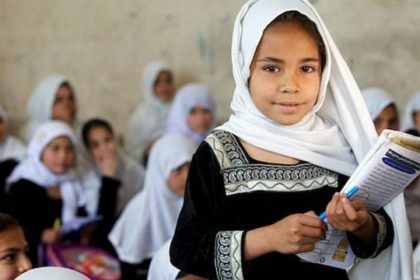RASC News Agency: In yet another alarming instance of targeted violence under Taliban rule, Akhtar Khan Molaanzada, a former senior police officer from the previous Afghanistan’s Republic, was brutally gunned down in the outskirts of Sheberghan, capital of Jawzjan Province. The killing, widely perceived as politically motivated, underscores the intensifying campaign of fear and repression against former military personnel across Afghanistan. According to local sources, the assassination occurred on Wednesday, July 2, in the village of Takna. Molaanzada, who had once commanded security for the Swedish military base in Jawzjan, had been returning from Mazar-e-Sharif, where he had traveled to visit his ailing wife. En route, he was ambushed by two armed assailants and fatally shot in what sources described as a deliberate and premeditated attack.
Witnesses told RASC News that the attackers opened fire at close range without provocation, before fleeing the scene. Despite no group formally claiming responsibility for the assassination, a growing number of former military colleagues and local residents have placed the blame squarely on the Taliban accusing them of orchestrating a clandestine purge of individuals affiliated with the former government. Molaanzada’s murder adds to a mounting list of extrajudicial killings that have plagued Afghanistan since the Taliban’s return to power in August 2021. Although the group initially announced a so-called “general amnesty” for former security forces, the reality on the ground tells a very different story: a campaign of quiet revenge marked by night raids, forced disappearances, arbitrary detentions, and targeted killings all conducted with near-total impunity.
Despite nearly four years under Taliban rule, the killings of ex-servicemen continue to go uninvestigated, with no accountability or independent oversight. For families of the victims, justice remains a distant dream choked off by a regime that has replaced the rule of law with a culture of silence and terror. Local residents in Jawzjan have expressed growing fears for their safety, particularly those who served in any official capacity under the previous republic. “These killings are not random,” said one community elder who requested anonymity for security reasons. “They are part of a systematic effort to erase any trace of the former government. No one feels safe not even those who laid down their weapons in good faith.”
Analysts say the Taliban’s ongoing campaign of vengeance undermines not only their internal legitimacy but also exposes the hollowness of their claims to peace and stability. “What we are witnessing is not governance,” said a Kabul-based security expert. “It is a campaign of erasure of cleansing the country of anyone who served a different vision of Afghanistan.” As with many similar cases, Taliban officials have yet to comment or offer any explanation regarding Molaanzada’s killing. Their silence, critics argue, is further evidence of complicity and intent.
While the Taliban seek international recognition and funding under the guise of stability and sovereignty, their actions particularly against former security officials paint a grim picture of a regime more interested in retribution than reconciliation. In a nation still grappling with economic collapse and humanitarian crisis, these acts of politically charged violence are deepening public despair and dismantling any hope for national unity.






